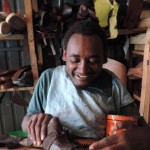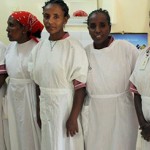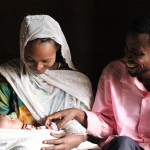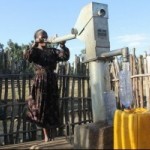Like many developing countries, the practice is widespread in Ethiopia, even though it is unlawful and punishable. This is particularly so in the Amhara Region where the prevalence is among the highest in the world as reflected in a 2010 Population Council study showing that almost 50 percent of girls were married before the age of 15 and some married as early as age 7.

Living with a disability often means facing discrimination, exclusion from mainstream society, and a formidable range of physical obstacles. For most of the more than 7 million Ethiopians living with disabilities, simply getting around usually requires assistance from family or friends, while earning a real income and having financial independence remain unattainable dreams.

In 1988, Mesaye*, a 15-year-old girl from North Gondor, Ethiopia, began to have contractions and knew that the birth of her first child was near. Unfortunately, like so many other young mothers whose bodies have not matured enough to safely give birth, Mesaye experienced an excruciating four days of labor that ended in a stillbirth.

Five years ago, Nefisa Hassen, a 24-year-old farmer from Ethiopia, had her first child at home. The labor and birth were prolonged and difficult. She prayed that, when her time came to deliver, she wouldn’t have complications forcing her to go to the health center. She could not handle the pity of her neighbors if she was unable to have a normal birth, and she wasn’t certain her husband could cover the cost of transportation to the facility.

You are thirsty. Now imagine walking six hours round trip, only to reach dirty water at your destination. That’s what Semegn Mikir did every day just to acquire water for her family in Ethiopia. Mikir is the mother of a 2-year-old daughter and lives in the rural Lay Gayint district in Taria Georgies village.








Comment
Make a general inquiry or suggest an improvement.